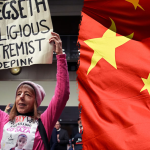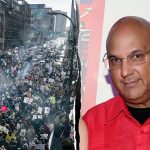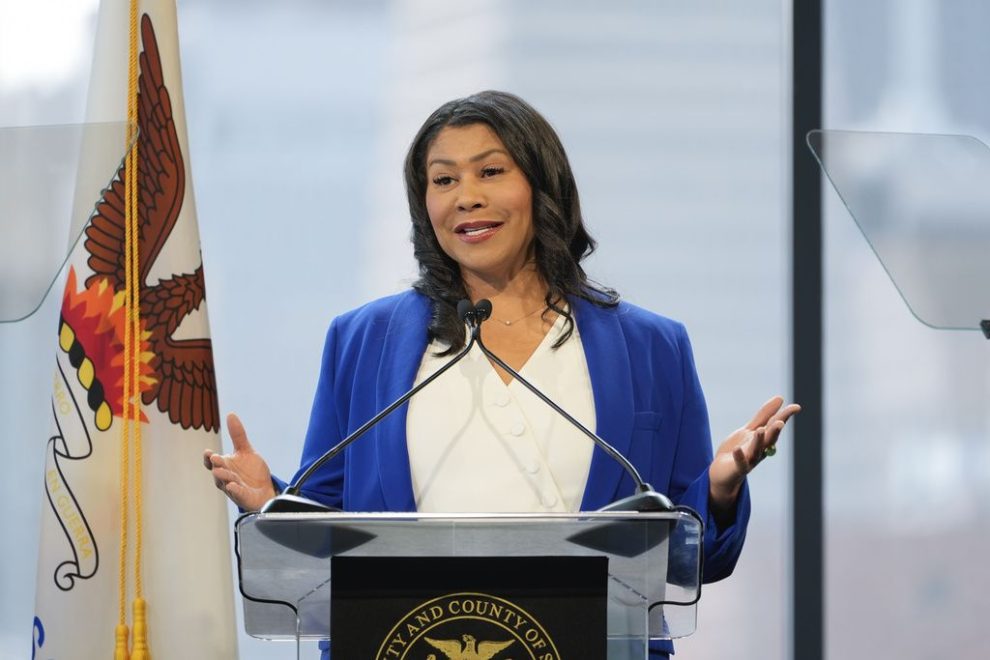San Francisco Mayor London Breed’s bid for a second term is looking up.
The Democratic mayor, who has been a verbal punching bag for progressives and conservatives upset with her inability to steer San Francisco out of its pandemic downturn, seems to have finally connected with some voters.
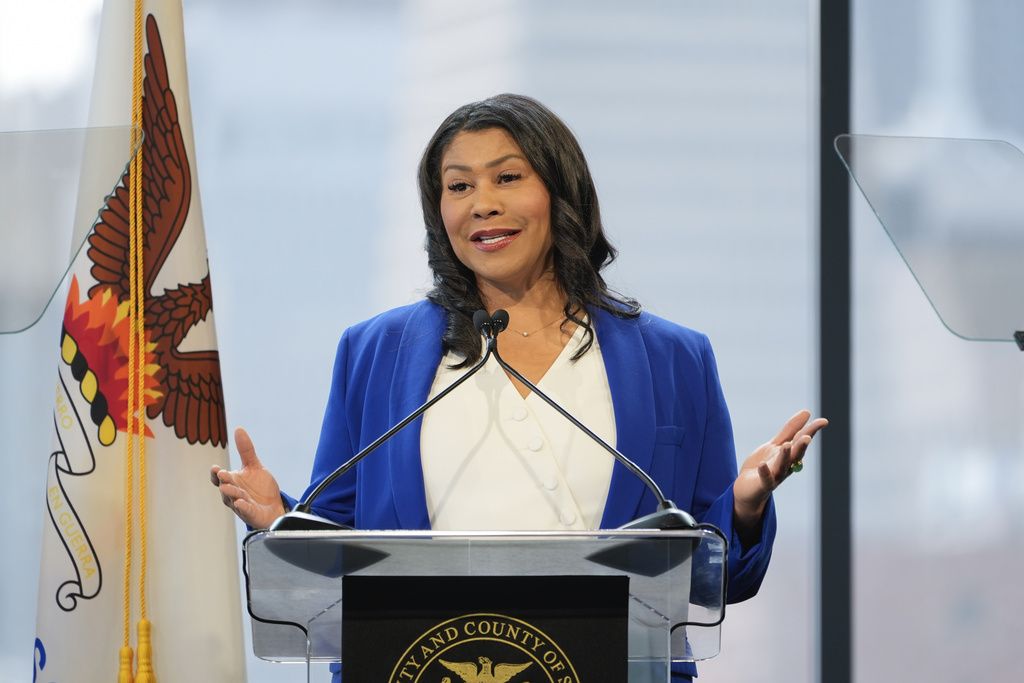
Her job approval rating has soared 13 percentage points, according to a new poll by the San Francisco Chronicle.
That means Breed has pulled ahead of her challengers and ranked the voters’ first pick in the November election. About 28% of likely voters polled from July 31 to Monday said they would either rank the incumbent mayor as their first choice or that they were leaning toward it. That is up from 18% in a similar poll taken in February.
In that poll, Breed was in serious danger of losing out to challengers Mark Farrell, a former San Francisco supervisor, and Daniel Laurie, the Levi Strauss heir. Twenty percent of likely voters ranked Farrell as their first choice, with Breed coming in at 18%. Lurie came in third with 16%, followed by Supervisor Ahsha Safai at 8%.
Since then, a lot has changed.
Breed has worked to emphasize her administration’s effort to reduce crime, crack down on open-air drug dens, and clean up the streets of San Francisco. Her newest push aligns with Gov. Gavin Newsom’s (D-CA) recent executive order that gives local officials more power to sweep homeless encampments.
In the first week since San Francisco began ramping up sweeps, police officers issued at least 13 citations for illegally setting up tents on public property, more than they handed out in the past month combined.
Last week, Breed also ordered city officials to offer homeless people one-way bus tickets out of town before providing other services such as housing or shelter.
Breed said the number of homeless people moving to San Francisco from other states and counties has grown from 28% in 2019 to 40% of the total homeless population in 2024.
“We’ve made significant progress in housing many long-time San Franciscans who became homeless,” Breed said in a statement. “But we are seeing an increase in people in our data who are coming from elsewhere. Today’s order will ensure that all our city departments are leveraging our relocation programs to address this growing trend.”
Specifically, the order mandates that all city and contracted staff members who engage with homeless people offer relocation as the first option. It also requires all first responders to provide information handouts on the city’s relocation services and a contact number. It also establishes a tracking system with publishable data to measure the effectiveness of the city’s various homelessness programs.
“San Francisco will always lead with compassion, but we cannot allow our compassion to be taken advantage of,” Breed wrote in the order. “This directive will ensure that relocation services will be the first response to our homelessness and substance use crises, allowing individuals the choice to reunite with support networks before accessing other city services or facing the consequences of refusing care.”
The mayor also helped pass a pair of ballot measures related to policing and bringing back businesses to a hollowed-out downtown area. The measures are a hard pivot for the Democratic mayor. One measure would expand police powers and the other would mandate drug screening and treatment for welfare recipients if they want to continue to collect monetary assistance.
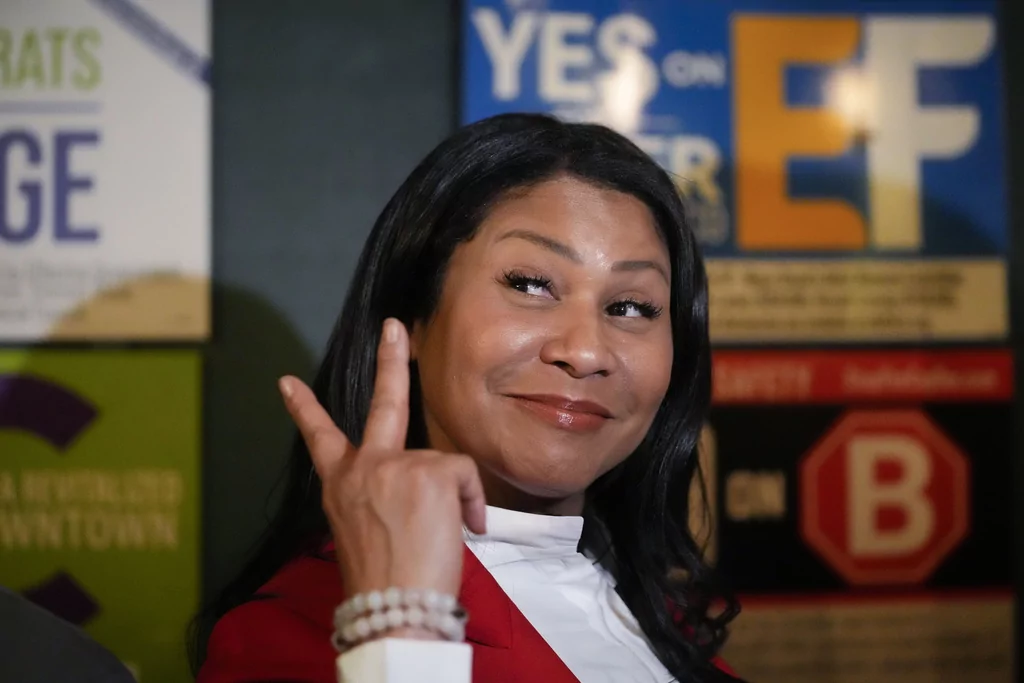
Political consultant Jim Ross said he believes Breed’s turnaround could be due to fewer viral stories about lawlessness on the streets. They could also simply be tired of the “doom loop” narrative that constantly paints the city as on the brink of chaos.
“You don’t have the billionaire class beating up on the quality of life in San Francisco like they were a couple years ago,” Ross said. “I think there’s a real benefit that she’s getting from people being done with the ‘San Francisco is descending into chaos’ stories.”
Despite Breed’s uptick in voter support, the other major candidates in the race, Laurie, Farrell, and Supervisor Aaron Peskin, believe they can beat her under San Francisco’s ranked choice voting system, which allows voters to rank candidates by order of preference. Breed’s campaign seems confident they can’t.
CLICK HERE TO READ MORE FROM THE WASHINGTON EXAMINER
Joe Arellano, Breed’s campaign spokesman, said Lurie and Farrell are “stuck in the mud with stagnant poll numbers.”
“Buying the election didn’t work for billionaire Rick Caruso in L.A., and it won’t work for the billionaire heir in SF, either,” he added.

